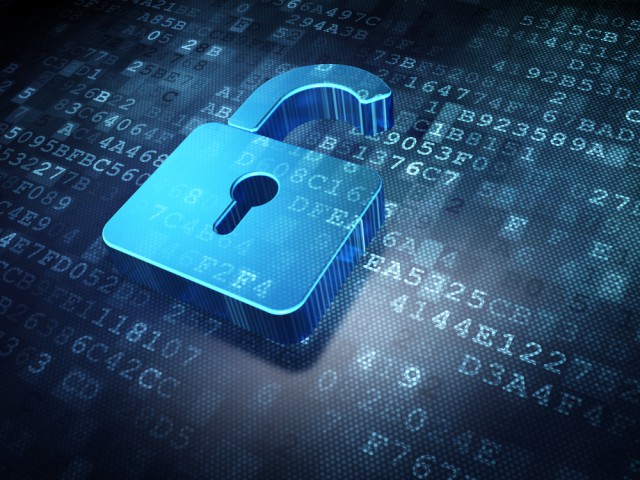In the modern world, where technology permeates every aspect of our lives, the importance of cybersecurity cannot be overstated. From personal information to critical infrastructure, our digital world is a treasure trove of valuable data that is constantly under threat. Cybersecurity is not just a matter of protecting our personal information; it’s a matter of safeguarding our way of life. In this blog post, we will explore the critical role of cybersecurity in the modern world and why it should be a top priority for individuals, businesses, and governments alike.
The Digital Transformation
The past few decades have witnessed an unprecedented digital transformation that has changed the way we live, work, and communicate. From online banking and e-commerce to social media and smart homes, the digital revolution has made our lives more convenient and connected than ever before. However, this digital transformation has also made us more vulnerable to cyber threats.
With the increasing reliance on the internet and digital technology, our personal information has become more accessible to hackers and cybercriminals. Identity theft, financial fraud, and data breaches have become common headlines in the news. The consequences of these breaches can be devastating, both financially and emotionally, for individuals and organizations alike.
Protecting Personal Privacy
One of the fundamental reasons why cybersecurity is crucial in the modern world is the need to protect personal privacy. In the digital age, we share a staggering amount of personal information online, from our financial details and medical records to our location and browsing habits. This information is often stored on servers and databases that are vulnerable to cyberattacks.
Cybersecurity measures, such as encryption and secure authentication, play a vital role in safeguarding our personal data. Without these protections, our private information can be stolen and used for malicious purposes, leading to identity theft, blackmail, and other forms of cybercrime.
Safeguarding Businesses and Economies
Beyond personal privacy, cybersecurity is essential for the stability and growth of businesses and economies. Businesses of all sizes rely on digital technology to operate efficiently and compete in the global marketplace. They store sensitive customer data, trade secrets, and financial information that, if compromised, can result in severe financial losses and damage to their reputation.
A successful cyberattack can cripple a company, leading to lost revenue, legal liabilities, and a decline in customer trust. Moreover, the economic impact of cybercrime extends beyond individual businesses. It can disrupt supply chains, harm critical infrastructure, and affect national economies. Therefore, investing in robust cybersecurity measures is not just a choice for businesses; it’s a necessity for survival in the digital age.
Protecting Critical Infrastructure
The modern world relies heavily on critical infrastructure, such as power grids, water treatment plants, and transportation systems. Many of these systems are now interconnected and controlled through digital networks, making them vulnerable to cyberattacks. The consequences of a successful attack on critical infrastructure can be catastrophic, affecting the safety and well-being of entire communities.
Governments and organizations responsible for critical infrastructure must prioritize cybersecurity to prevent potential disasters. Cyberattacks on critical infrastructure can result in power outages, water contamination, and transportation disruptions, with far-reaching consequences for public safety and national security.
National Security and Geopolitics
In addition to the economic and societal implications, cybersecurity plays a pivotal role in national security and geopolitics. Nations worldwide are engaged in a constant battle to protect their digital assets and gain a strategic advantage in cyberspace. Cyberattacks can be used as a tool for espionage, sabotage, or even warfare.

The importance of cybersecurity in international relations cannot be underestimated. Nation-states are investing heavily in cyber capabilities, both defensive and offensive, to protect their interests and influence the global stage. Cybersecurity has become an integral part of national defense, and its significance continues to grow in an increasingly interconnected world.
The Human Factor
While technology and advanced cybersecurity tools are critical, it’s essential not to overlook the human factor in cybersecurity. Many cyberattacks are successful because of human error, whether it’s falling for phishing scams, using weak passwords, or failing to update software regularly. Education and awareness about cybersecurity best practices are crucial in reducing these vulnerabilities.
Individuals and organizations must prioritize cybersecurity training and awareness programs to create a culture of security. This includes practicing good cyber hygiene, being cautious online, and reporting suspicious activities promptly. Cybersecurity is a collective effort that requires the active participation of everyone. For further help, tips, and advice on the importance of cybersecurity, you may visit CPO Magazine to learn more.
Conclusion
In the modern world, where technology is omnipresent, the importance of cybersecurity cannot be overstated. It’s not merely a matter of protecting personal information; it’s a matter of safeguarding our personal privacy, businesses, economies, critical infrastructure, national security, and even our way of life. As we continue to embrace the digital age, the need for robust cybersecurity measures and a heightened awareness of cyber threats becomes increasingly vital. It’s a shared responsibility that requires collaboration among individuals, businesses, governments, and international communities to ensure a secure and prosperous digital future.






